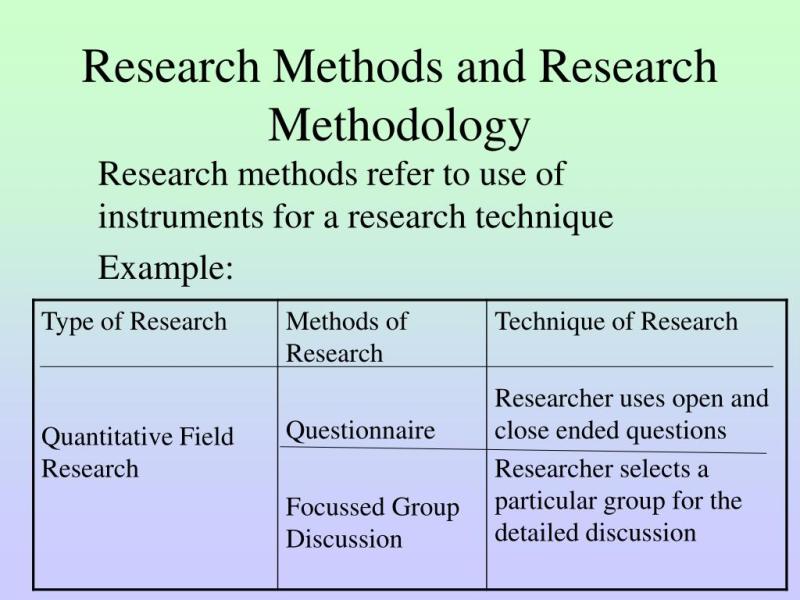What is considered empirical research?
Empirical research is a type of research that relies on observable and measurable phenomena and involves the systematic collection and analysis of data. The term "empirical" refers to information gained through experience, observation, or experimentation.
Characteristics of Empirical Research:
Observation or Experimentation: Empirical research involves direct observation of phenomena or the manipulation of variables through experimentation. Researchers gather data through sensory experience and/or experimentation to test hypotheses or answer research questions.
Systematic Approach: The research is conducted in a systematic and structured manner, following a predefined research design or methodology. This helps ensure that the study is replicable and the results are reliable.
Data Collection: Empirical research relies on the collection of data that can be quantified and analyzed. This data may come from various sources, such as surveys, experiments, observations, or existing databases.
Quantitative or Qualitative Analysis: Empirical research can be either quantitative or qualitative. Quantitative research involves the analysis of numerical data, often using statistical methods, while qualitative research involves the analysis of non-numerical data, such as interviews, observations, or textual information.
Hypothesis Testing: Empirical research typically involves formulating hypotheses and testing them through data analysis. The results of the analysis contribute to either accepting or rejecting the initial hypotheses.
Objectivity: Researchers strive for objectivity in empirical research, attempting to minimize personal biases and emotions. The goal is to obtain findings that are based on evidence rather than personal opinions.
Replicability: One of the strengths of empirical research is its potential for replication. Other researchers should be able to conduct similar studies using the same methods and procedures to validate or challenge the original findings.
Conclusions and Generalizations: Empirical research aims to draw conclusions and make generalizations based on the analyzed data. The findings contribute to building a body of knowledge in a particular field.
Peer Review: Empirical research is often subjected to peer review, where other experts in the field assess the study's methodology, results, and conclusions before it is published. This process helps ensure the quality and reliability of the research.
Empirical research is widely used across various disciplines, including psychology, sociology, economics, and natural sciences, as it provides a systematic and evidence-based approach to understanding and explaining phenomena in the world.
Characteristics of empirical research
Empirical research is a type of research that relies on observation or experience to gather knowledge. It is often contrasted with theoretical research, which is based on abstract concepts and ideas. Empirical research is characterized by the following features:
- Focus on observable phenomena: Empirical research focuses on phenomena that can be observed or measured. This means that the research questions and methods must be designed to collect data on these observable phenomena.
- Systematic data collection: Empirical research involves the systematic collection of data. This means that the data collection process must be planned and carried out in a way that ensures that the data is reliable and valid.
- Objective analysis: Empirical research involves the objective analysis of data. This means that the researcher must avoid making personal biases or assumptions about the data.
- Replication: Empirical research should be replicable. This means that other researchers should be able to follow the same procedures and obtain similar results.
- Generalization: Empirical research should be generalizable. This means that the findings of the research should be applicable to a broader population or context.
What defines research as empirical in nature?
Research is defined as empirical in nature when it meets the following criteria:
- It is based on observation or experience.
- It is systematic and objective.
- It is replicable and generalizable.
These criteria ensure that empirical research is a reliable and valid way of gathering knowledge.
Are there specific criteria or methodologies associated with empirical research?
Yes, there are a number of specific criteria and methodologies associated with empirical research. These criteria and methodologies vary depending on the specific research question and the type of data being collected. However, some common criteria and methodologies include:
- Operationalization of variables: This is the process of defining and measuring variables in a way that is consistent with the research question.
- Sampling: This is the process of selecting a subset of a population to represent the entire population.
- Data collection methods: There are a variety of data collection methods, such as surveys, experiments, and interviews.
- Data analysis methods: There are a variety of data analysis methods, such as statistical analysis and qualitative analysis.
The specific criteria and methodologies used in a particular empirical research project will depend on the specific research question and the type of data being collected.



